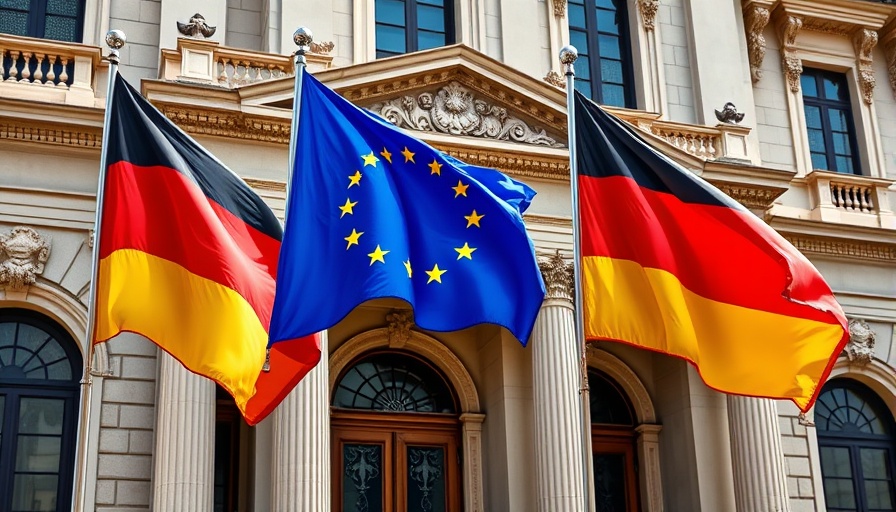
Germany's Fiscal Leaps: What Does It Mean for the Eurozone?
On March 18, 2025, the German Bundestag approved an unprecedented €1 trillion spending bill, marking a significant shift in the country's fiscal strategy. This budget comprises substantial allocations for defense, infrastructure, and climate initiatives, with €500 billion earmarked for infrastructure development alone. As Germany pivots towards increased government spending, a critical question arises: how will this funding boost impact both Germany's economic landscape and the wider European Union?
Understanding the Debt Brake and Its Implications
The adoption of this spending package necessitated an exemption from Germany’s stringent fiscal rules, referred to as the debt brake. While this approach may spur short-term growth by funding vital projects, its long-lasting effects are open to debate. Economists have raised concerns that the increased government expenditure could lead to higher interest burdens and potentially crowd out private investments, which are crucial for sustained economic health.
The Ripple Effect on Europe’s Economy
Germany’s fiscal decisions do not exist in a vacuum; they influence neighboring nations within the European Union. As Germany increases its debt load, other countries could experience higher borrowing costs, leading to inflationary pressures or even fiscal crises. Moreover, the capacity of both Germany and its EU partners to tackle future economic challenges risks being diminished.
Immediate Financial Ramifications
The market has already reacted to Germany’s new fiscal strategy, with German 10-year bonds suffering their most significant decline since the 1990s. Yields surged, reflecting investors' apprehensions about the future financial burden this spending bill may create. The implications of rising yields extend to many citizens, particularly younger generations seeking mortgages, as their ability to secure financing could shrink dramatically.
Taxation and Public Spending: A Balancing Act
Germany's tax environment complicates this fiscal narrative further. With already high income tax brackets and substantial social security contributions, any shifts in public spending raise crucial questions regarding future tax reforms necessary to sustain its ageing population. As the government seeks to balance fiscal responsibility with growth initiatives, navigating this landscape will be vital not just for Germany, but for the broader economic stability of Europe.
In summary, while Germany's newly adopted financial strategies aim to foster growth, attention must turn to their feasibility in the long run and the cascading effects on the EU’s economic structure. To understand the evolving landscape of fiscal policy and its relevance to citizens across Europe, enhanced public discourse and informed political engagement become paramount.
 Add Row
Add Row  Add
Add 




Write A Comment